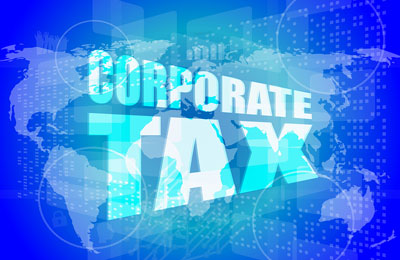
Middle East continues to be the least demanding tax framework.
Qatar, UAE top global ranking for paying taxes
DOHA, November 27, 2014
Qatar and UAE share an equal first place in a global ranking for the total tax rate, the number of payments and the time taken to comply, a report said.
Qatar has a total tax rate of 11.3 per cent, takes 41 hours to comply and there are four payments to make. The UAE figures are: tax rate of 14.8 per cent, 12 hours and four payments, the report said.
The Middle East continues to be the least demanding tax framework, with an average total tax rate of 24 per cent, 16.8 average number of payments and an average time to comply of 160 hours, added the latest Paying Taxes 2015 study from the World Bank Group and PricewaterhouseCoopers (PwC).
Paying taxes has become easier over the past year for medium-sized companies around the world, the study found.
The time it takes an average company to meet its tax obligations dropped by four hours last year.
The report also revealed that the total amount the average company paid in taxes and the number of payments it made also declined in the past year. This is a trend seen every year over the ten year period covered by the publication.
Overall ranking for Middle East countries ranking in the global top 50:
• Qatar and United Arab Emirates – 1st
• Saudi Arabia – 3rd
• Bahrain – 8th
• Oman – 10th
• Kuwait – 11th
• Lebanon –40th
• Jordan – 45
Dean Kern, partner, PwC’s Middle East Markets, Tax and Legal Services Leader said: “The Paying Taxes report helps inform the discussion around tax reform, a topic which is very relevant for governments in the region who need to respond to megatrends impacting us; such as rapid urbanization, demographic changes in addition to achieving sustainable government fiscal positions.”
Commenting on Qatar's move to the number one position Neil O'Brien, tax leader in PwC Qatar, noted that this aligns with the Government strategy and the policies they have implemented in making tax compliance easier for business.
Adding the recent electronic filing initiative is again a further demonstration of the continuing programme of improvement and modernisation that the Government of Qatar is committed to in further improving its interaction with business, he said.
“As we have seen with the recent and substantial tax reforms in different countries in the region, governments in the Middle East are very much engaged in deliberations concerning tax reform, not just in terms of fiscal balances, but also with broader policy objectives such as encouraging economic growth,” said Jeanine Daou, Partner and Middle East Leader for Indirect Taxes and Fiscal Policy.
“It’s clear per the findings of the report that the Middle East tax environment remains the least demanding, however it also highlights an important area that the region needs to work hard on, which is improving the use of electronic filing and payment mechanisms.”
Only 15 per cent of the economies in the Middle East region have implemented electronic systems for filing and payment of taxes for at least one type of tax that are used by the majority of companies. This is second lowest result across all the regions.
The Paying Taxes 2015 report finds that on average, the standard company studied has a total tax rate of 40.9 percent of commercial profits. It makes 25.9 tax payments per year and takes 264 hours to comply with its tax requirements.
Over the ten years of the study, 78 percent of the 189 economies covered in the report have made significant changes to their tax regimes at least once. The time and the number of payments required to comply with tax obligations have fallen over the ten-year period, as has the average total tax rate.
The fastest rate of decline for the total tax rate occurred during the financial crisis from 2008-2010 with an average decline of 1.8 percentage points per year during that period. The rate of decline then started slowing in 2011.
The average time it takes a medium size company to deal with its tax submissions has fallen by a total of nearly a week and a half over the ten years of the study; reflecting the increased use of electronic filing and payment systems around the world. Of the 379 tax reforms recorded in Paying Taxes reports since 2004, 105 relate to electronic filing.
Paying Taxes 2015 measures all mandatory taxes and contributions that a medium-size company must pay in a given year. – TradeArabia News Service







